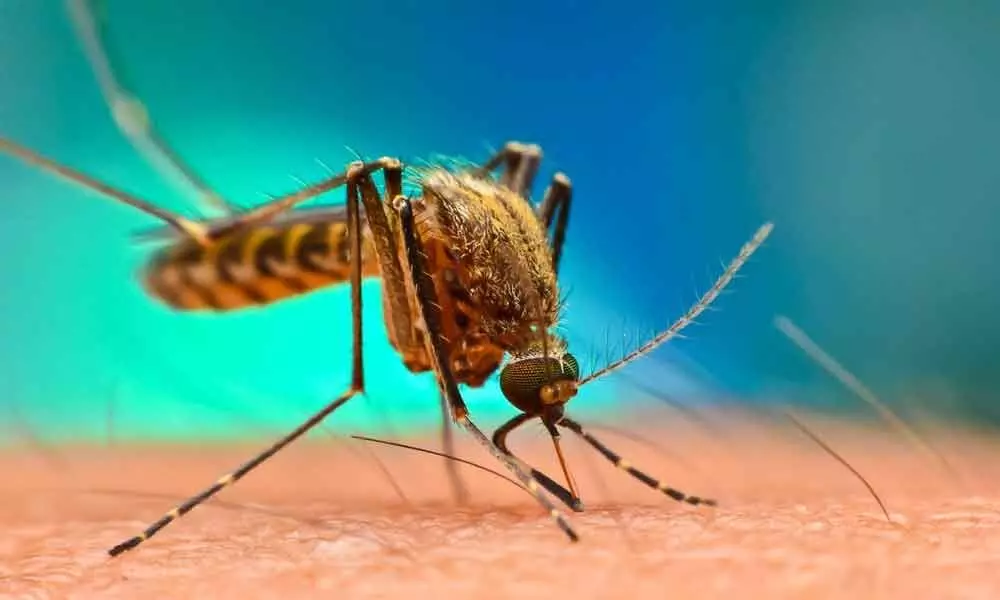UoH researchers close in on potential Malaria cure

UoH researchers close in on potential Malaria cure
It continues to be a serious threat to mankind due to failure in curbing the disease
Gachibowli: A team of researchers from the University of Hyderabad (UoH) has made a major discovery that promises a potential cure for malaria. The research team led by Prof Mrinal Bhattacharya and comprising his students Wahida Tabassum and ShaluVarunan identified a correlation between the fever that is induced by malaria and the antigenic variation of the malarial parasites.
The trio studied Plasmodium falciparum Erythrocyte-Membrane-Protein 1 (PfEMP1), the protein from the malarial parasite, which is the most predominant molecular determinant of antigenic variation in this parasite.
There could be up to 90 variants of this protein and only one protein is expressed at a given time, and this expression is completely random.A direct implication of this would be the failure of the human immune system to produce adequate antibodies against each type of new antigen.
The study, published in "Molecular Microbiology" journal, uncovered how the parasites manipulate the expression of malarial proteins on the surface of the infected red blood cells in response to fever, which is the most common manifestation of the disease. They found that exposure to febrile temperature modulates the expression of virulence genes that could impact chronicity of malaria infection.
The researchers discovered that the master epigenetic regulator in Plasmodium, namely PfSir2, is itself regulated transcriptional by epigenetic modification. It was discovered that the molecular chaperon Hsp90 serves as the key link between environmental heat stress and chromatin modification in this parasite.
Over-production of Hsp90 due to fever, results in lower PfSir2 regulation. This leads to the simultaneous expression of multiple virulence genes, hence promotes the antigenic variation in the parasites.
The research team has found this crucial link between PfHsp90 and PfSir2. Regulation of PfHsp90 can eventually lead to expression of PfSir2, and can thereby lower the antigenic variation in the parasites, thus, halting the immune escape by the parasites.Creating a drug to regulate Hsp90 is the next step to successfully prevent malaria in the future.
"In our lab, during the course of other research work, we have come across some small chemical molecules that can inhibit or inactivate Hsp90. By the year-end or within 6 months we should zero in on the chemicals that can inhibit Hsp90," said Prof Bhattacharya.
Malaria is a life-threatening disease caused by malarial parasite Plasmodium falciparum transmitted among humans through bites of infected female Anopheles mosquitoes.The World Health Organization's (WHO) report of 2019 estimated 229 million malaria cases and malaria deaths at 4,09,000 worldwide.
Children below the age of 5 years are the most vulnerable and accounted for 67 per cent or 2,74,000 of all malaria deaths worldwide. It continues to be a serious threat to mankind due to failure in curbing the disease.
Lack of an effective vaccine, development of resistant parasites to all the available anti-malarial drugs, and emergence of insecticide-resistant mosquitoes are the major impediments in controlling the disease.

